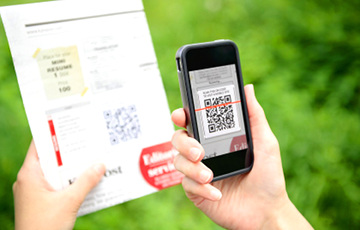Belarusians Have Found A Way Not To Punch QR Codes On Goods
12- 30.06.2025, 21:14
- 18,806

How it works.
It's not obligatory to punch QR codes at cash registers - Belarusians have found a way to bypass the system, reports Blizko.by.
Soon Belarusians will be obliged to read labeling codes in addition to the existing barcodes when paying at self-service cash registers. Such a procedure will be mandatory from July 1.
But ordinary customers do not appreciate the innovation. The purchase process is stretched, and the unfortunate marking can be located anywhere and the size can be different.
The last detail and helped to discover the flyhack. But it works with some reservations.
Customers tried to scan the QR code on the glazed cheese, but it was so small that the scanner could not catch it in any way.
In such cases it is necessary to contact the administrator, and this time he really helped.
The trick is as follows: scan the barcode for the second time. The system immediately gives a warning: "Find a special mark on the product (similar to a QR code), scan the mark with a scanner".
It also says (with an error): if there is no mark on the product, you must contact the administrator.
What to do? Nothing. After a few seconds on the screen just appears a green button "Add goods to the check". We press it and everything works as usual.
This scheme works only with cash registers in Euroopt stores. Most likely, this is a temporary bug and it can be fixed at any time.
In the Ministry of Taxes and Levies, labeling of goods with special codes is necessary to combat counterfeiting and illegal turnover of products. Two-dimensional Data-Matrix code allows buyers to make sure of the quality and legality of goods.
The system with codes works not only in Belarus, but also in the EAEU countries (Armenia, Kazakhstan, Kyrgyzstan and Russia).
According to the resolution of the Council of Ministers, such goods as:
tea, coffee, dairy products, vegetable oil, caviar
juices, water, sodas
beer, low-alcohol drinks
shoes, light industry goods, fur products, watches
motor oil, pneumatic rubber tires and tires new, detergents
liquids for electronic smoking systems
laptops, tablets, printers, cell phones, monitors, televisions and others.
How often Belarusian stores had problems with low-quality and illegal products, the Ministry of Taxes and Levies did not specify.











